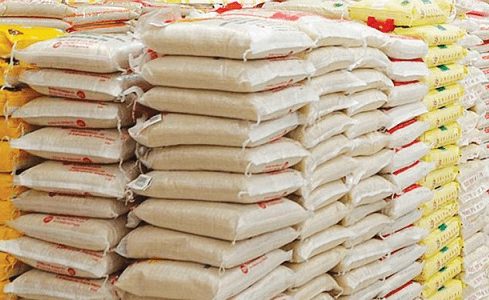The West African rice market, particularly in Nigeria, has experienced a significant price drop in recent months, primarily due to increased imports from India via the Republic of Benin. The influx of lower-priced Indian parboiled rice, facilitated by India’s removal of export duties, has flooded regional markets, leading to a near two-year low in prices. In remote areas of Nigeria, a 50kg bag of rice, which previously sold for around N80,000, can now be purchased for as low as N58,000. This dramatic decrease highlights the impact of cross-border trade and the challenges faced by local producers in competing with cheaper imports.
The surge in Indian rice exports to West Africa, specifically parboiled rice, is substantial. Between September and December of the previous year, India shipped approximately 2.11 million metric tonnes of parboiled rice to the region, a significant increase from the 720,000 metric tonnes exported during the same period in 2023. This trend continued throughout the year, with total exports to West Africa reaching 5.35 million metric tonnes in 2024, compared to 3.9 million metric tonnes in 2023. This significant influx has led to overflowing warehouses in Benin, a key transit point for rice entering Nigeria.
The market reaction to the increased supply has been a significant price reduction in both local and imported rice within Nigeria. Local rice prices have fallen from N80,000-N90,000 to around N60,000 per 50kg bag. Similarly, the price of imported Indian rice has decreased to N80,000. This price war has created a subdued market atmosphere across West Africa, with traders describing the situation as “quiet and bearish.” Despite the appealing lower prices, consumer demand has not increased proportionally. Buyers appear to be adopting a wait-and-see approach, anticipating further price drops before making significant purchases. This cautious behavior further contributes to the stagnant market conditions.
The dynamics of the rice trade in the region are heavily influenced by Nigeria’s position as the largest rice market for Benin. Despite a ban on rice importation in Nigeria, significant quantities continue to enter the country illegally through Benin. This illicit trade further exacerbates the pressure on local rice prices and undermines efforts to promote domestic rice production. Border communities in Nigeria, particularly in Ogun State, benefit from this cross-border trade, enjoying even lower rice prices, sometimes below N50,000 per 50kg bag. This price disparity underscores the porosity of the border and the challenges faced by Nigerian authorities in controlling the flow of smuggled goods.
The current market situation presents a complex challenge for stakeholders across the rice value chain. While consumers benefit from lower prices, local producers struggle to compete with the influx of cheaper imports. The Nigerian government’s efforts to promote self-sufficiency in rice production are hampered by the persistent smuggling of rice from Benin. Traders, facing a stagnant market and cautious buyers, are experiencing difficulties in moving their stock. This complex interplay of factors highlights the economic and political ramifications of cross-border trade and the challenges of regulating informal markets.
Looking ahead, market participants anticipate a potential increase in demand as the festive season approaches, typically around September. This seasonal uptick in consumption might offer some relief to traders and stimulate market activity. However, the fundamental issue of unchecked rice imports and the resulting pressure on local producers remains. The long-term stability of the rice market in Nigeria hinges on effectively addressing the smuggling issue and fostering a more competitive environment for domestic rice production. This requires sustained efforts from both government agencies and stakeholders within the rice industry to enforce import regulations, improve local production efficiency, and promote consumer preference for locally grown rice.


